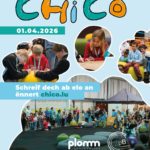Formation
VERSCHOBEN! „Sag, wie hast du’s mit der Religion?“
„Nun sag‘, wie hast du’s mit der Religion?“
Europäische Integration und europäische Identität in einer postsäkularen Welt
Die berühmte „Gretchenfrage“ nach der Religion aus Goethes „Faust“ gewinnt auch für die Zukunft der europäischen Einigungspolitik neue Aktualität. Was verbindet die Europäer, nachdem sich die Vorstellung, das östliche Europa werde sich in kultureller Hinsicht sehr schnell den westlichen Gesellschaften angleichen, als westliche Selbsttäuschung erwiesen hat?
Zu den kulturellen Differenzen zwischen Ost und West in der EU gehört auch der unterschiedliche Stellenwert von Religion, und unter den Interessenten an einer künftigen Mitgliedschaft finden sich hoch religiöse Länder wie die Ukraine und Georgien. Erst recht zeigt ein globaler Blick den hohen Stellenwert von Religion im größten Teil Welt. Die so genannte Säkularisierungsthese, nach der die Modernisierung von Gesellschaften Religionen zwangsläufig immer weiter schwächen und perspektivisch zum Verschwinden bringen werde, hat sich nicht bestätigt. In den Sozialwissenschaften ist deshalb schon seit geraumer Zeit von der „postsäkularen Gesellschaft“ die Rede.
Die europäische Integrationspolitik hat der Frage nach dem, was die Europäer verbindet, also nach der europäischen Identität, lange kaum Aufmerksamkeit gewidmet. Aber ohne eine überzeugende Antwort auf diese Frage dürfte der innere Zusammenhalt in einer noch größer werdenden EU kaum zu sichern sein. Inzwischen wächst zwar das Interesse an diesem Thema. Doch die populären Antworten überzeugend nicht, wenn sie die Bedeutung von Religion, in erster Linie des Christentums, für die Entstehung und Entwicklung der europäischen Kultur ignorieren. Eine ganz Europa verbindende Identität wird sich ohne eine kulturelle Erneuerung, die diese gemeinsame christliche Tradition wiederentdeckt und für heute weiterdenkt, nicht entwickeln lassen, so die These des Vortrags.
Wolfgang Sander, Dr. phil., ist Professor (em.) am Institut für Politikwissenschaft an der Justus-Liebig-Universität Gießen und Autor des Buches „Europäische Identität – Die Erneuerung Europas aus dem Geist des Christentums“ (Leipzig 2022).
‘So tell me, what’s your attitude to religion?’ European integration and European identity in a post-secular world.
The famous ‘Gretchen question’ about religion from Goethe’s ‘Faust’ is also gaining new relevance for the future of European integration policy. What unites Europeans now that the idea that Eastern Europe will quickly harmonise culturally with Western societies has proved to be a Western self-deception?
The cultural differences between East and West in the EU also include the different significance of religion, and among those interested in future membership are highly religious countries such as Ukraine and Georgia. A global view reveals the high value placed on religion in most of the world. The so-called secularisation thesis, according to which the modernisation of societies will inevitably weaken religions further and further and cause them to disappear in the long term, has not been confirmed. The social sciences have therefore been talking about the ‘post-secular society’ for some time now.
For a long time, European integration policy has paid little attention to the question of what unites Europeans, i.e. European identity. But without a convincing answer to this question, internal cohesion in an even larger EU is unlikely to be secured. Interest in this topic is now growing. However, the popular answers are not convincing if they ignore the importance of religion, primarily Christianity, for the emergence and development of European culture. According to the thesis of the lecture, it will not be possible to develop an identity that unites the whole of Europe without a cultural renewal that rediscovers this common Christian tradition and rethinks it for today.
Wolfgang Sander, Dr phil., is Professor (emer.) at the Institute of Political Science at Justus Liebig University Giessen and author of the book ‘Europäische Identität – Die Erneuerung Europas aus dem Geist des Christentums’ (Leipzig 2022).


